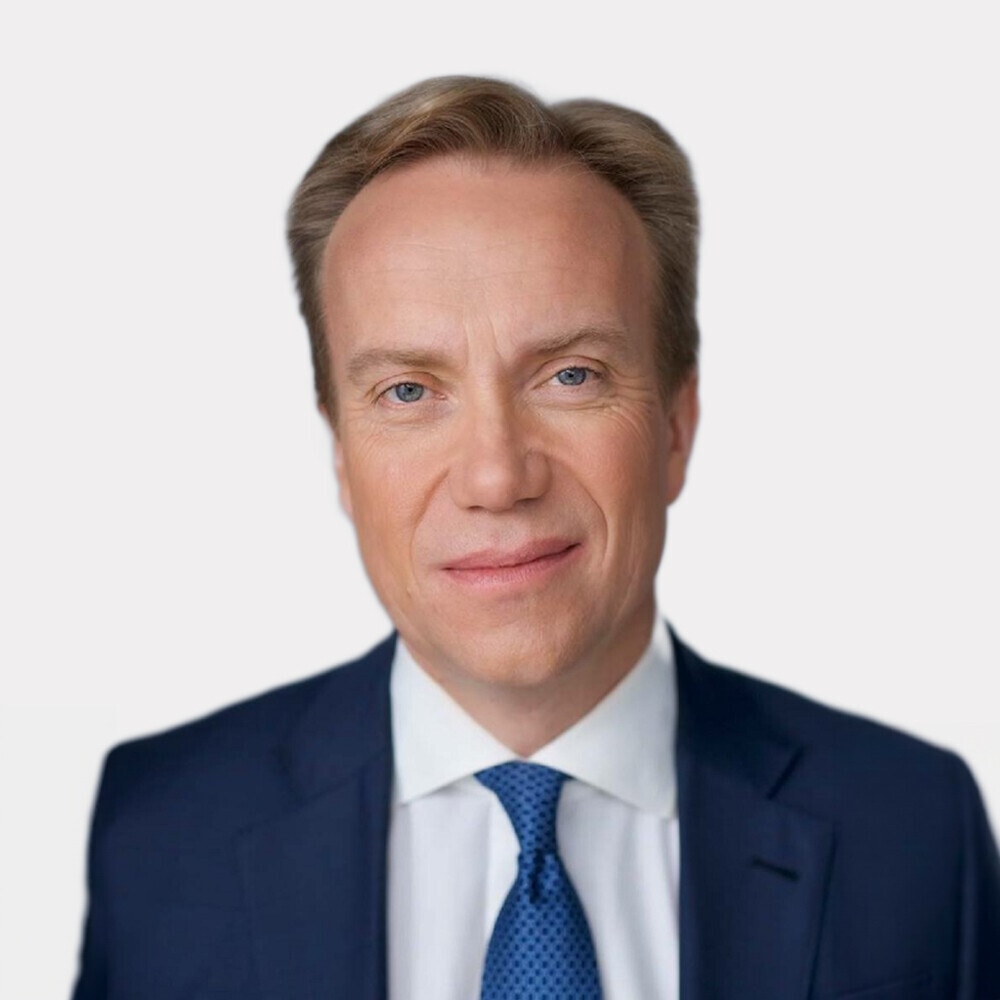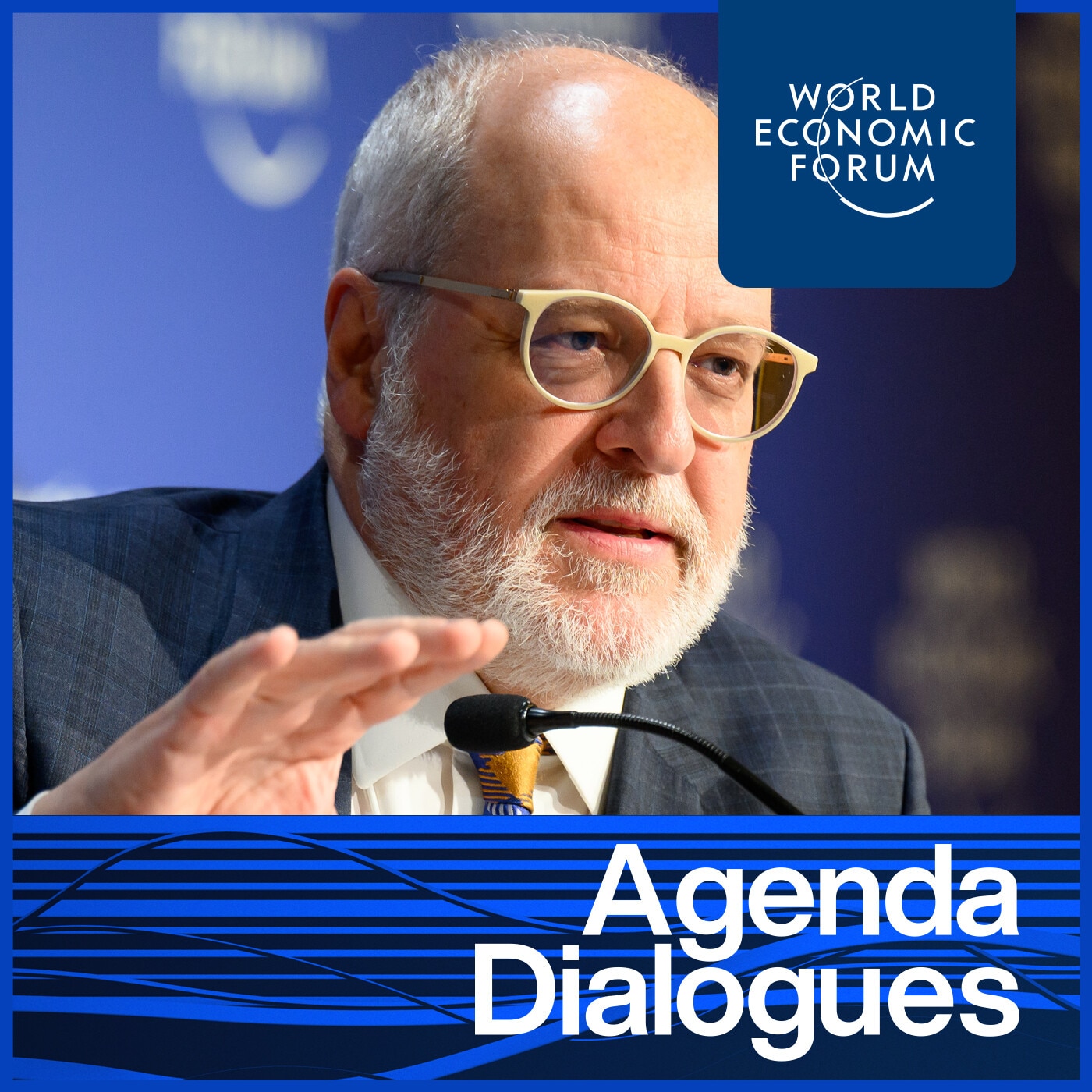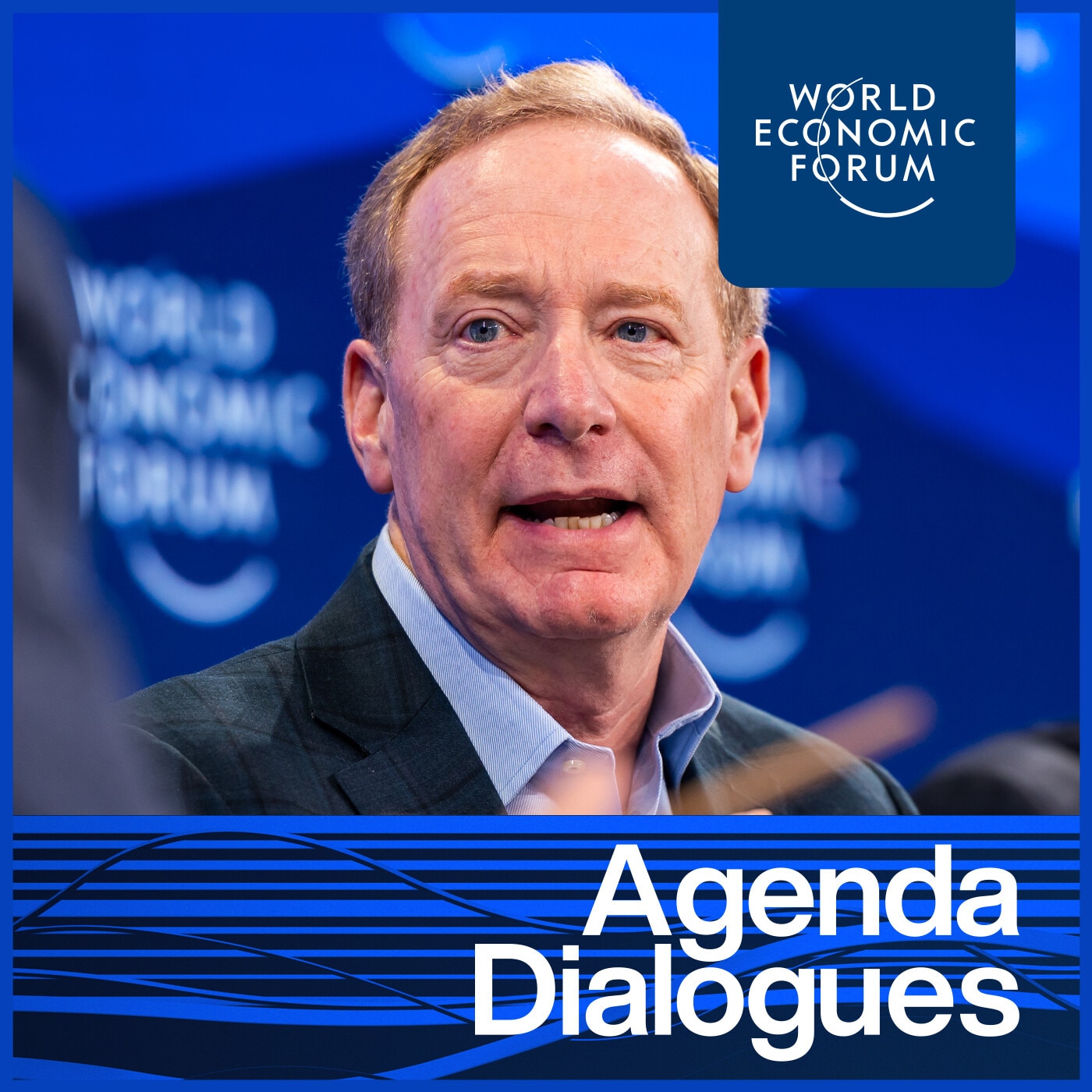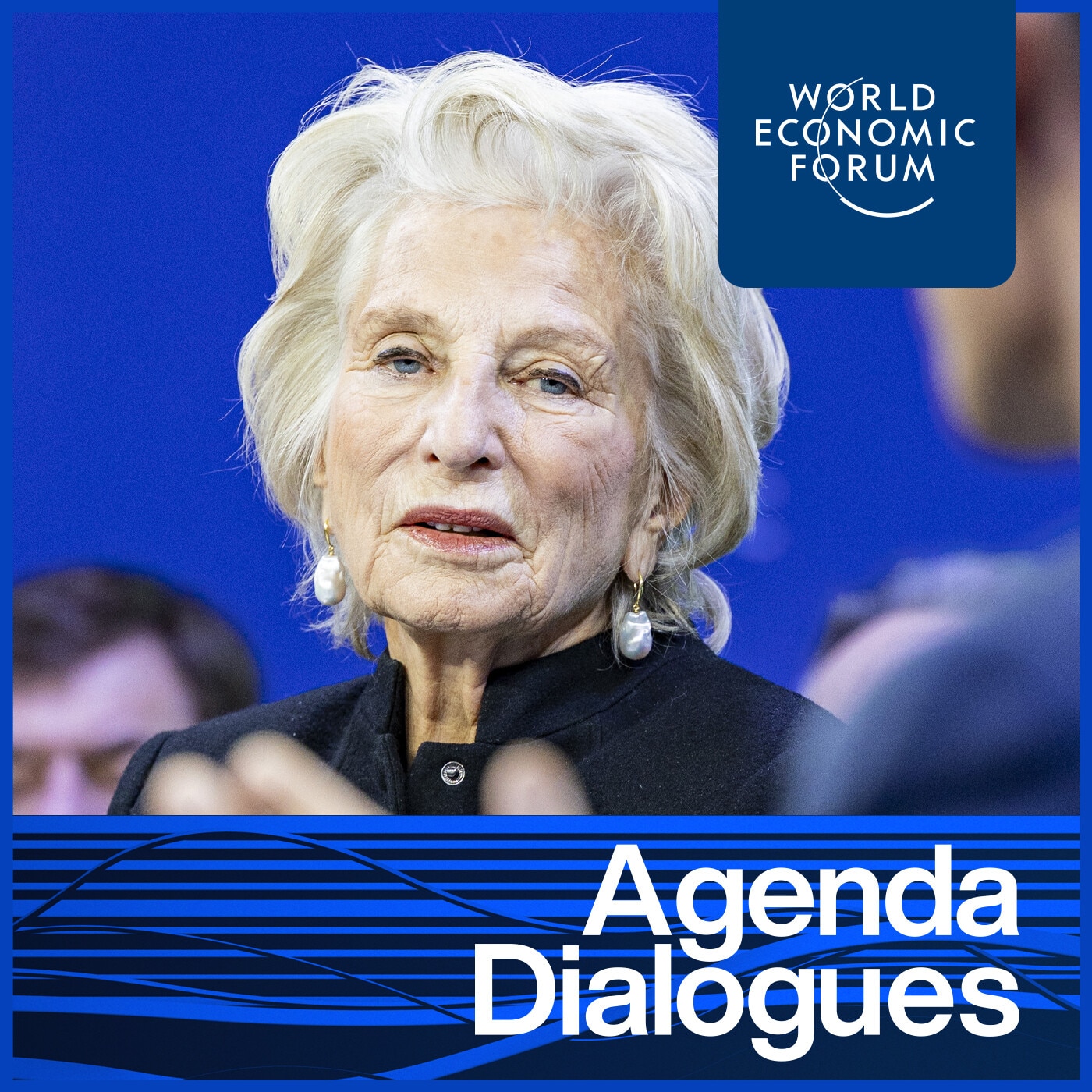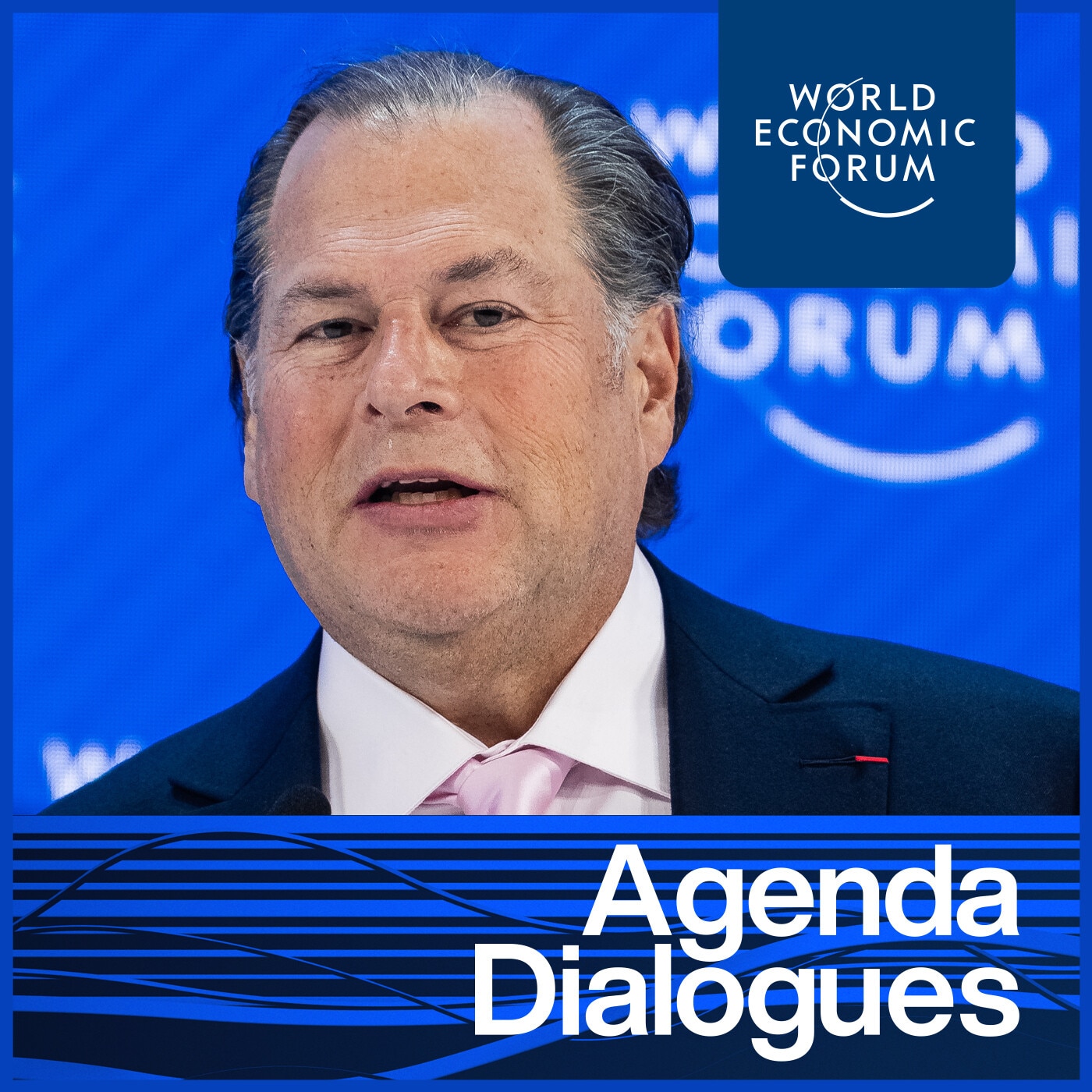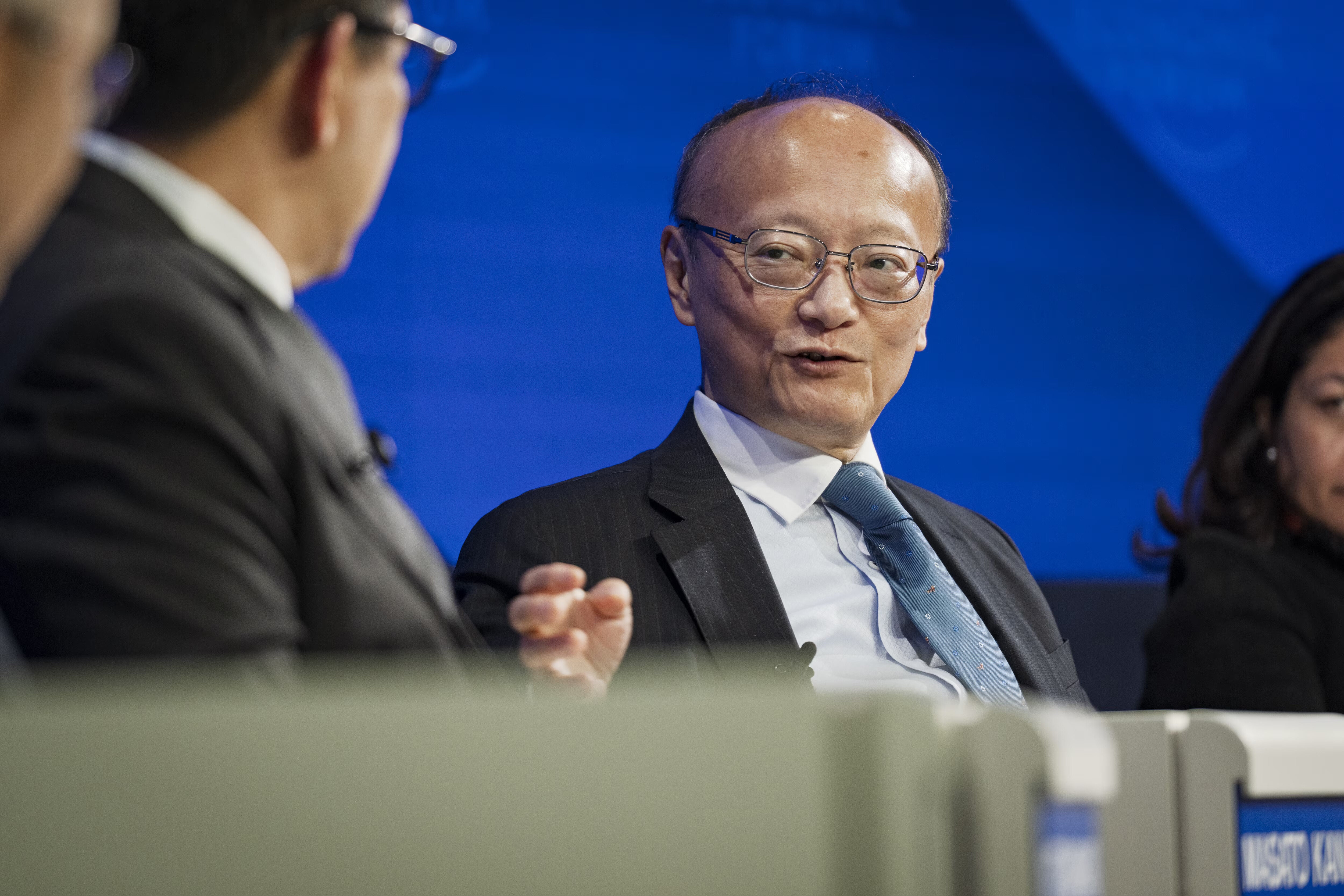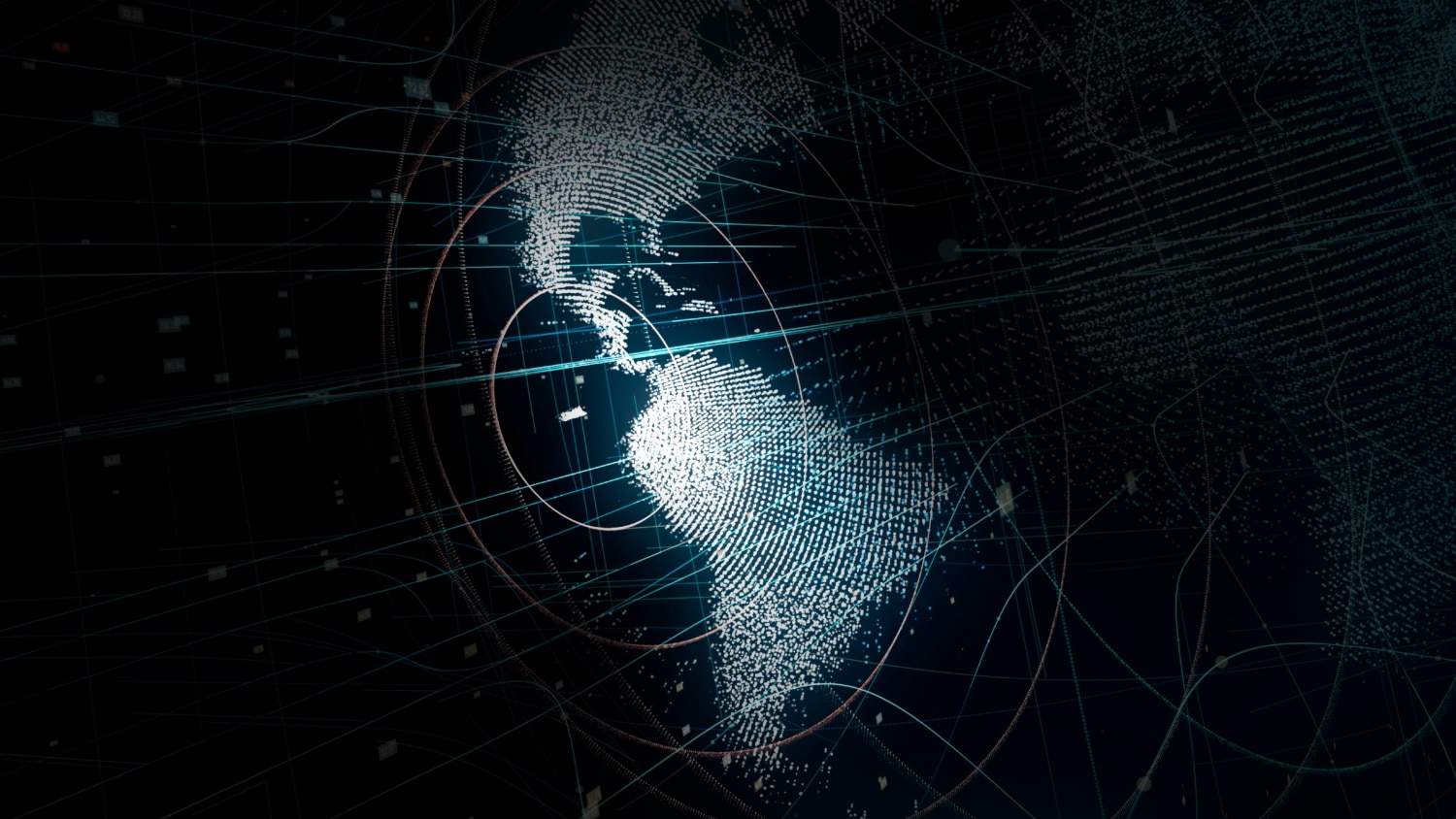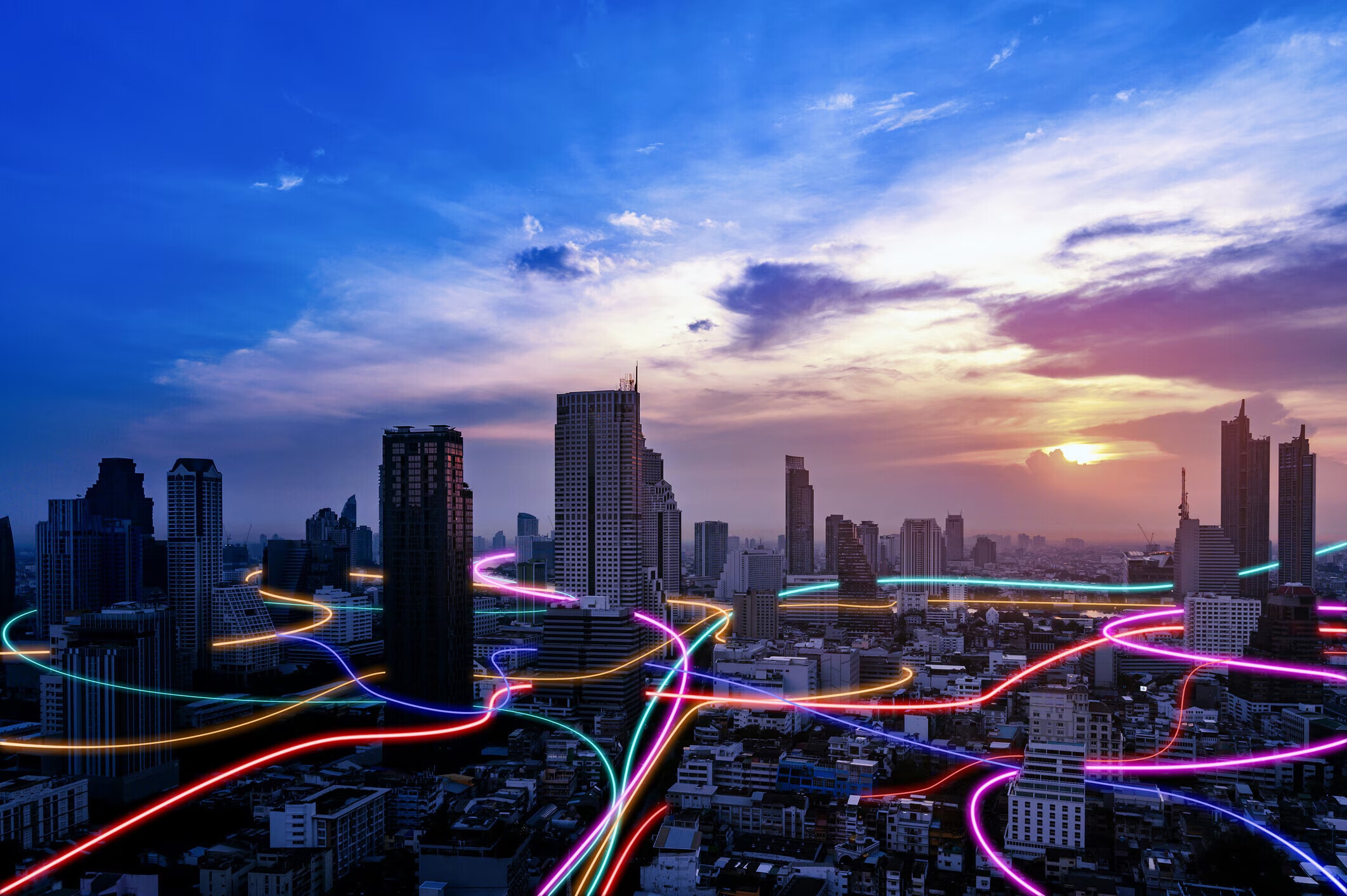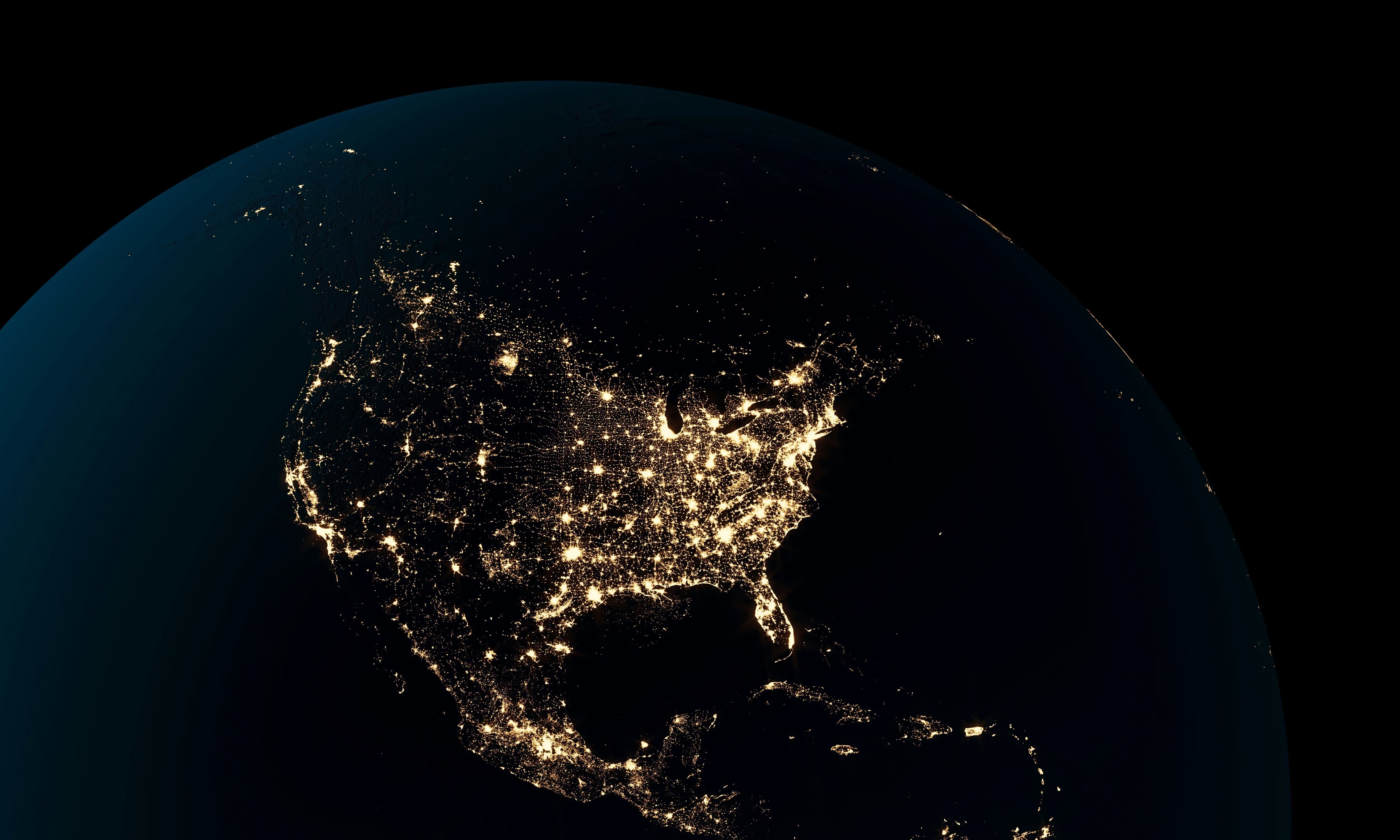AMNC25: A Conversation with Sir Tony Blair
ポッドキャスト・トランスクリプト
Borge Brende, World Economic Forum Good afternoon. Welcome to Sir Tony Blair. Also welcome to all of you. When I walked in the room 15 minutes ago, it was already full. I think that's a testament to you, Tony, and the interest for hearing your perspective on the geopolitical and geo-economic situation. Could it have been more complicated, the geopolitical situation that we're seeing today?
Tony Blair, Tony Blair Institute for Global Change We'd be kind of out of business if it wasn't so. Yeah, no, of course it's complicated. But first of all, let me say it's a great pleasure to be at the World Economic Forum, the Summer Davos, and welcome to everyone here. Yeah, it's complicate, but then it's always complicated. I can't remember a time, certainly my time in politics, when people didn't say this is the most complicated period we've ever been in.
Borge Brende, World Economic Forum And it certainly looked much more complicated just 24 hours ago, especially in the Middle East, didn't it?
Tony Blair, Tony Blair Institute for Global Change Yes. Um, should we kind of start there?
Borge Brende, World Economic Forum Yes, I think so. What was started is ended...
Tony Blair, Tony Blair Institute for Global Change Well, the ceasefire is in effect. It appears which is good. I think if you - Because it's a fast-moving situation -- If you take a step back, I think the following things are clear.
This is potentially a pivotal moment for the Middle East.
”And I think this is potentially a pivotal moment for the Middle East. And there is something positive that can come out of it as well. Number one, I think it is very clear, at least under this American president, that Iran will not be allowed to develop a nuclear weapon.
Number two, I think the last year has seen a weakening of Iranian proxies around the Middle East region with Hamas or Hezbollah, the Houthis. There's been the fall of Assad in Syria and a new regime emerging there. Lebanon's got a real chance, I think, of a future now. So that is also a big change.
I think thirdly, we shouldn't ignore what also has been going on in the Middle East, which is a continuing effectively peaceful revolution in Saudi Arabia in terms of its economic and social development. The UAE and Qatar, the whole of that Middle East region, there is the emergence of what I would call modernizing strong forces.
And finally, therefore, I think because of the forces that have been, I think against religious tolerance and against modernizing your economy. I think because those forces are weaker today, there is a real opportunity for the Middle East. But I do think it's going to be important to use that opportunity, particularly to bring about an end to the war in Gaza on a basis that protects Israel's security but offers hope for the Palestinians.
So I think if you take a step back, I think you can, you can articulate a situation in which, if you like, those people that believe in religious tolerance and open, connected economies have been strengthened. Those people opposed to those principles have been weakened. But we need to use that and use the new landscape in the Middle East to end the conflict that is still there and to give a greater chance of opportunity and hope for the people.
Borge Brende, World Economic Forum Well, thank you. A lot of things to follow up on there, but let's start with the situation in Iran. As you said, Iran had proxies with Hezbollah in Lebanon, partly Hamas in Gaza, of course, Assad in Syria. What is now left is maybe Shia militia in Iraq, and the Houthis in Yemen. But it is now a weakened regime back in Tehran. How do you think the situation will unfold domestically in Iran as a result of this? Are you afraid that also more radical forces in the military can be strengthened, or do you think this is the beginning of the end?
Tony Blair, Tony Blair Institute for Global Change I think you really can't tell. I suspect there will be continued internal repression because the people of Iran also, by the way, I think the majority of them want to live in a religiously tolerant society, and also they're a very smart, capable people. Iran's an ancient civilization. It's people probably do want to be connected to the global economy. So we'll just have to see, but I think a lot will depend on Not simply on how we deal with the problems of the Middle East, but how we access the opportunities that are there given the new situation that's come about.
Borge Brende, World Economic Forum Could you have foreseen the fall of all this proxies so fast from for Iran, like Assad gone, Hezbollah not even getting themselves involved in the Iranian-Israeli conflict the last weeks?
Tony Blair, Tony Blair Institute for Global Change Well, I think no one could fully foresee the collapse of those proxies. But I think there's a very interesting lesson here, which is, I mean, it's pretty obvious that the Iranian regime was infiltrated at virtually every level and that there were a lot of people who were working against them. And if you take Lebanon, for example, I mean the role of Hizballah in Lebanon over the years has been a baleful role. It's held the country back. And the Lebanese, again, I mean, you meet Lebanese people all over the world, particularly in the business community. They're really smart, capable people. They deserve something better.
And we have to wait and see what happens in Syria. I mean my institute has had discussions with the government there. And in Iraq, which you mentioned, Yeah, they also want to be. Independent. They want to pursue again the enormous economic potential of the country. So I think what is interesting is, I think most people didn't foresee the collapse would be this big, but the question is why did that collapse happen? And it happened because in the end, believe it or not, people want to be free, they want to get economic opportunity. They prefer to live in a world of religious tolerance, not religious extremism. And I think this is a really, really important lesson for the whole of the Middle East.
Because the world today works by connectivity. The more connected you are, the more open-minded you are. If you're educating your young people to be creative, if you're educating them that it doesn't matter what race or faith or nation you come from, let's see what we have in common. These are great things. And this is where the future of the Middle East is.
And that's why it's so important what's happening in those countries that are modernizing. You know, you do a poll in the Middle East, by the way, of young people across the whole of the Middle East and ask them which country do you want your country to be most like? The answer is, I think virtually every year comes back the UAE.
So, you know, this is, and that's not a coincidence, by way, it's because of the way the governance has been. And one of the reasons why you know my institute works in almost 50 countries across the world today and one of the fascinating things is everyone always thinks their situation is unique and of course in a way it is. But whichever country you go to most of all what people want is the opportunity to do well right if they work hard, to have peace and stability, to raise their family with some chance of a decent future. And that's the same wherever you go. And the key to it is good governance that is open-minded itself, that is effective in providing opportunity for people and is connected to the world.
Borge Brende, World Economic Forum I think that deserves an applause, huh? Thank you. But as you said, this is also a pivotal moment for the Israeli-Palestinian situation. And what has been unfolding in Gaza has caused a lot of global concerns. And there was also talk about a rapprochement between Israel and Saudi Arabia, or even Saudi Arabia being part of an understanding based on the Abraham's Accord. But due to the situation in Gaza that has now become a bit of an impasse. Are there ways of breaking this impasse now post the Iranian situation and the ceasefire?
Tony Blair, Tony Blair Institute for Global Change Well there are ways of breaking the inpasse and getting back to a path of normalization between Israel and the countries in the region. But that will only happen if there's a just solution for the Palestinians. And it shouldn't be beyond our intelligence or ingenuity to devise something that protects Israel's security, because Israel's right to be secure as a state, but gives the Palestinians the ability for self-determination and to make sure that young Palestinians also have some hope for the future. And what has happened in Gaza is terrible. It's an appalling situation. We should bring it to an end as swiftly as we can. But it can only be brought to an end on the basis that Gaza is going to be run and governed in a way that provides that hope for the Palestinians and that security for Israel. And I hope very much that as a result of what has happened, because -- after all, Iran was supporting Hamas -- after what has happen, I hope that this does open up an opportunity to chart a new path there. You know, I've been dealing with, you've been dealing with this issue a long time. I've being dealing with it a long time, I spend a lot of time in the region and I have not stopped in the last 20 years as I've been going back and forth in the region saying to everybody: "Unless we have a fair and just resolution of this Palestinian-Israeli conflict, we're always at risk of the Middle East erupting again." It's not to say it's caused all the problems of the Middle East, but it is to say that resolving it would provide a much greater confidence in future stability.
Borge Brende, World Economic Forum And as I think many of you remember, Sir Tony Blair was the head of the Quartet in Jerusalem for many years. I think you spent many years of your life in discussions between Israeli leaders and Palestinian leaders. But I'm wondering when you say, "a just solution for the Palestinians" I guess you're then saying an agreed two-state solution. Or what, can you be a little bit more concrete on what it is realistic to get accepted from the Israeli side and not at least the Palestinians because we should not forget that Yasser Arafat turned down several two-state solutions in the past.
Tony Blair, Tony Blair Institute for Global Change Yeah. Well, I'll be as concrete as is wise to be with this particular --
Borge Brende, World Economic Forum an interesting caveat.
Tony Blair, Tony Blair Institute for Global Change And look, if you're in Israel right now and-- you know, one of the things that's always difficult in politics is that -- You know, depending on where you are and what your experience is, the lens through which you see things can be very different. And if you're in Israel right now, given what for them was the trauma of October the 7th and what has happened subsequently, with the hostages still there, some of them, then you know there aren't going to be many politicians talking about a two-state solution in Israel right now.
On the other hand, I do not believe that people are in principle against self-determination for the Palestinians. After all, the Palestinians -- you know, is the state of Israel's not going anywhere? The Palestinians aren't going anywhere. So I always say to people, because we went through all of this in Northern Ireland, where you have two peoples living side-by-side and they're in conflict with each other, then only one of two things happens. Either they make peace, which eventually we were able to do in Northern Ireland, or alternatively, the more powerful one will effectively manage the weaker one. And that's never a long-term solution.
So in the end, I think it is possible to see a way forward, but it will depend absolutely on what the outcome of the Gaza war is and what happens in Gaza. Because in the end ehe problem is people often talk about a two-state solution. And sometimes I think over the past years, the further away it's got, the more people talk about it. But the reality is, it starts on the ground, right? And right now you've got Gaza in ruins and the West Bank in a lot of turmoil. We've got to fix those things and then lay the foundations for a return to that type of conversation.
If you want to be in the real world, you can issue declarations about two state solutions, and people do all the time. But if you want make it really happen, you've go to deal with the root causes, and you've got to create the circumstances on the ground, where those two peoples feel they can live side-by-side in peace with one another. And at the moment, that's distant, so we've got to work on it.
Borge Brende, World Economic Forum And as you said, the most critical piece now is Gaza, the humanitarian situation, but also who wants then to contribute to rebuild what was there in Gaza. So I guess there needs to be like a path, at least for the coming year, for Gaza. I guess Hamas cannot be part of that path, but how is that possible then if Hamas is still there and part of the infrastructure is still there? So what could the possible scenarios be that are realistic?
Tony Blair, Tony Blair Institute for Global Change Well, there are a lot of different scenarios that people put forward, but I think at this stage what you can say are very clear principles that have to be applied. I mean, because no one is going to put money back into Gaza unless there's some stable framework for the future. And you remember, this isn't the first Gaza conflict. There have been several before this. So I think the principles are very clear. Hamas cannot control Gaza, because that would be unacceptable.
Obviously, you need a situation where the Gaza people are able to have a future, and that means at some point you need the withdrawal of Israeli forces. And then it needs to fit within a framework where people feel there's some political horizon in the future. So these things are all being worked on at the moment. And it's going to be an extremely tough challenge. But it's a necessary one to meet. And all the time, what you've got to do is think about, I mean, there's over two million people there. And it is a young population, a very young population. And at the moment, it's a population without any hope at all. But the crucial thing will be how Gaza is governed afterwards.
Borge Brende, World Economic Forum So we are in China at also an important time for this really, really big country. Second largest economy in the world. It is still contributing this year to 30% of the global growth even though has slowed down a bit in China, too. It is compared to many other places in the world, quite a substantial growth. There are 1.4 billion people. I think you visited China the first time in 1988.
Tony Blair, Tony Blair Institute for Global Change Thank you for reminding me of the aging process, but yeah.
Borge Brende, World Economic Forum I guess there was a different China then compared to today.
Tony Blair, Tony Blair Institute for Global Change Yes, there was a lot of people on bicycles which they wanted to get off. Today I find there are a lot of people getting back on bicycles for different reasons.
No, it's an amazing it's look at some probably the most remarkable story of transformation in human history and by the way it's really interesting to know how it began, it began with China opening up. You really divide people into two categories when it comes to China. There are people who do not want China to be powerful. And then there are people who are perfectly willing to accept that China should be powerful, but wonder to what purpose will this power be put? So you've got these two categories of people.
Now, on the first, I think it's a limited category, and they're people I just profoundly disagree with. China's got every right to be a major power, by dint of its civilization, its population, its economy, its technology, the fact that this transformation story has happened. Also, because my institute works in so many different countries in the world, China is most countries' biggest trading partner, other than their nearest neighbor, right? So you've also got, you know, you go to the countries we work in, whether in Africa or in Asia, Central Asia, Latin America, people don't wanna choose. You know, people want relations, of course they want good relations with America and the West, but they also want good relationships with China, right. So, I think that first category of people is small and we just need to have an argument there. China's got every right to be a power.
The second question is, to what use is this power going to be put? And that's where what I say to people is we should be strong enough to deal with whatever happens in China, but we should be engaged with China. We need to understand China. And we also need, because this is what's come home to me. I mean, look, one of the really sad things about the period of time after leaving office is how much I've learned. That's actually shocking. I mean, I think, I wish I'd known all this when I was doing the job.
Borge Brende, World Economic Forum It's not too late, you can run again, you know.
Tony Blair, Tony Blair Institute for Global Change Don't give me ideas. And one of the things I think is really, really important, and it's something I want my institute to work on. You've got to see China through China's eyes and not through the West's eyes. And I think this is a really, really important part of -- this is why I'm so much in favor of engagement, people to people, not just government to government, business. You know, China's, it's, you know, you're going to reach the middle of this century where I think effectively you've got three superpowers. There'll be America, China, and probably India. And everyone else is going to have to, if they want to sit at the same table as the three giants, they're going have to come together. That's why I think you're getting these regional blocks are going to become much more important. You know, Europe, ASEAN, Mercosur. You know, people are going to have to do together what they can't do individually, because in a country like Britain, yes, we've got a fabulous history of which we're very proud, but you put us alongside those three giants and just by dint of size, you're not at the same scale.
And one of the other things I've learned in politics over a long period of time is that politics does operate, of course, according to values, but it also operates according to power. And you've got to be realistic about it. If you are around giants, they have a habit of sitting on people or treading on them. And so if you want to make sure you're not going to get sat on, you've got to come together. And that's why whatever the difficulties, for example, in Europe. I think it's centripedal. Is it centripedal that puts things together? That centripedal force of necessity, because people need to come together, whether you're Germany, Italy, France, you need to come to together in order to be able to have a dialog in equal terms. So I think this is the way it's happening. And look, I think understanding China, staying engaged with China, not engaged in trying to isolate China, that's the policy, I believe.
Borge Brende, World Economic Forum You're seeing that while we're speaking here, you see a shift from in general among the big players from soft power to hard power, you can argue in global geopolitics. And this is also this notion of interest swears that the big nations are creating interests squares. I think you indirectly said that to avoid that you need to have a dialogue. You cannot just observe. You have to --
Tony Blair, Tony Blair Institute for Global Change You need a dialogue and you need allies.
Borge Brende, World Economic Forum But how concerned are you about a world with less multilateralism and more interests, swears, and hard power?
Tony Blair, Tony Blair Institute for Global Change Well, in the end, hard power is just a reality. But the interests of the world are that you have a fair trading system, that you're dealing with issues like climate change, global health. I mean, look, we went through the pandemic. I just think it's, I'm just a believer that whatever differences there are in today's world, you try and sort them out, but you've got to keep everyone engaged together and in dialogue with each other because you've go so many things that you had to do in common. You know, even today with the state of US-China relations and, you know, yes it's true America's trade with China has declined significantly, but it's still hundreds of billions of dollars. And so I think, you're inevitably in a situation where if you don't find means of having dialog, you'll be forced back into it again because it's in your interest to do it. And one of the reasons why I think, for example, with Europe, there's a huge challenge now for Europe, is that it's going to have to find the way of being an important player in that dialogue. But to do that, it's gonna have to strengthen itself.
Borge Brende, World Economic Forum But how can Europe then balance if there's pressure to choose between the US and China? How can Europe, then, say that that is not --
Tony Blair, Tony Blair Institute for Global Change Well, the question for Europe is how does it have independent strength? And you know, there are two things that you need in today's world to be strong. You need a strong military and a strong economy. Now in the military terms, Europe, European defense, now I think it's eventually got a chance. I started it actually with the president of France some years back. It never really took off, but I think in a way people understand now, Europe's got I have independent ability, for example, if it's got a conflict going on its own doorstep, which is the case right now, it's going to have the ability militarily to influence that.
And then the strong economy, you know, the key thing is competitiveness, and today the key to that, in my view, is technology, and in particular the artificial intelligence revolution, which Europe at the moment is not a key player in. I mean, you've got America, you got China, but Europe's got a lot of catching up to do. I think it can do it. The Draghi report that was published setting out what Europe should do is the right thing. People are very skeptical whether Europe will do it, I personally believe it may do. But that's the key for Europe. The question is how does it become independently strong enough that whether it's engaging with America, that will always be a key ally, or with China, it's able to have the dialog on equal terms. And that's, you know, that's power.
Borge Brende, World Economic Forum And that's also this idea of more European interdependence. But you're saying that today Europe has a lot of catching up to do, for example, on the new technologies. But also in the past, Europe has easily been written off. Remember Greece was almost bust in 2012, now they're borrowing at a lower cost than most of the other. European countries, Spain had 40% youth unemployment. Now, Spain is the fastest growing of all of the OECD countries. And the euro was almost gone, and is still now definitely the strongest second currency in the world after the dollars. Do we underestimate Europe sometimes, or, and do you think, Europe under this kind of pressure, with the war in Ukraine, the competitiveness, can be able to pull things together and hence also balance different interests globally.
Tony Blair, Tony Blair Institute for Global Change Well, that's the big job. But you're right. I mean, look, that's what I was really saying, that people can write off Europe. And there are some people in my own country that have done that. But the fact is Europe's carried on growing. And there's still quite a large number of countries waiting to join Europe.
So the question is, as I say, the question is, can Europe become More powerful than it is now. And that depends both on defense and technology, in my view. Yeah, it can do, but it's going to have to take those decisions that are going to make it more competitive. And one of the things you learn about politics, again, is that people -- the holy grail in politics is to make really important change without pain. But no one ever got hold of the Holy Grail. And so in politics, it's not possible. If you wanna make change, it is gonna be painful. And what I learned about change and reforms -- one of the reasons I do what I do with the Institute now -- is that whenever you're trying to make a change, people tell you it's a terrible idea. When you're doing it, it' absolute hell. And after you finish doing it you wish you'd done more of it. And that's what I think is -- So Europe's got big decisions and it needs big leadership to carry them through.
Borge Brende, World Economic Forum We're coming to getting towards the end, but we already spoke about one ceasefire that has entered into force in the last hours, but there is no ceasefire in Ukraine. And do you think there is still a war in Ukraine when we meet next year around the same time in Dalian for summer Davos, or do you then think there's a solution?
Tony Blair, Tony Blair Institute for Global Change And I think there is a solution. I hope we find one. I think the role of China will be important in that, by the way. You know, this has been a catastrophic war and you look at the casualty figures. It's a conflict with an almost first World War element to it in the numbers of people dying on the battlefield. I mean, sort of unthinkable, really, in the modern age. And on the other hand, I think it's also changed the nature of warfare, because you've seen how a modern war is now going to be conducted. And technology, by the way, is the single most important component element of it. So, I hope very much we can reach an agreement. But we won't be able to reach such an agreement unless it's accepted that whatever the solution in Ukraine, Ukraine's independence is guaranteed. And If there is a finish to the war in Ukraine, we don't get a resurgence of it at a later time. And so the guarantees that are given around that are going to be extremely important.
Borge Brende, World Economic Forum Last question to try to end on a forward-looking note. I know that you and your institute has been working a lot on the impact and the opportunities also related to the new technologies. One thing is gen AI, but you have big data, you have robotics, you have space, you have synthetic biology, you have like a revolution going on. How much of a paradigm shift is this? Is it the second industrial revolution? And how will it shape our world to something better?
Tony Blair, Tony Blair Institute for Global Change Yeah, so I think it's a total revolution. I think this is the 21st century equivalent of the 19th century industrial revolution. I think it's going to change everything. Now, look, it's tough because for political leaders today, you know, they find it hard to understand. I mean, I was saying to people the other day, I, I was asked to go and give a speech on, on crypto currency some time ago and I made the mistake of saying yes.
Borge Brende, World Economic Forum I made a similar one.
Tony Blair, Tony Blair Institute for Global Change Right, so I phone my oldest son who's in the technology business and I say: Explain cryptocurrency to me. So he explains it. I said, I don't understand a word of what you're saying. So, he then sends me this little booklet whose title is the Idiot's Guide to Cryptocurrency, I still don't understand it. So I phone him on the morning of the speech, I say..."But I'm going to address these people. What do I say to them?" He says, "Tell them you're sick."
I completely get it from a leader's point of view today why they're daunted by it, but I honestly think this is a complete revolution, it will change everything and the countries and companies that embrace it are going to succeed and those that don't will fall behind. So I think it will be like the industrial revolution. Those countries that embraced it went up. Those countries didn't fell behind. So I think this is that if I was back in government today, the single most important mission, because it can change healthcare, it can education, it can the way the government works, and it's the only key to productivity in the private sector. And I think it's going to be, in some respects, very scary, because it's general purpose technology, so it can be used for good things, and it can also be used bad things. But I think how you understand, master, and harness the technology revolution is the single biggest governing challenge for the 21st century.
Borge Brende, World Economic Forum Thank you. Thank you so much to Sir Tony Blair for joining us here this afternoon.
Tony Blair, Tony Blair Institute for Global Change Thank you very much, everyone. Nice to see you all. Thank you.
A Conversation with Sir Tony Blair, Prime Minister of the United Kingdom (1997-2007); Executive Chairman, Tony Blair Institute for Global Change, United Kingdom.
Hosted by Børge Brende, President and CEO of the World Economic Forum, at the AMNC25 in Tianjin, China on 24 June, 2025.
Watch it here:
Catch up on all the action from AMNC25 at wef.ch/amnc25 and across social media using the hashtag #AMNC25.
トピック:
地政経済と政治その他のエピソード:
「フォーラム・ストーリー」ニュースレター ウィークリー
世界の課題を読み解くインサイトと分析を、毎週配信。

